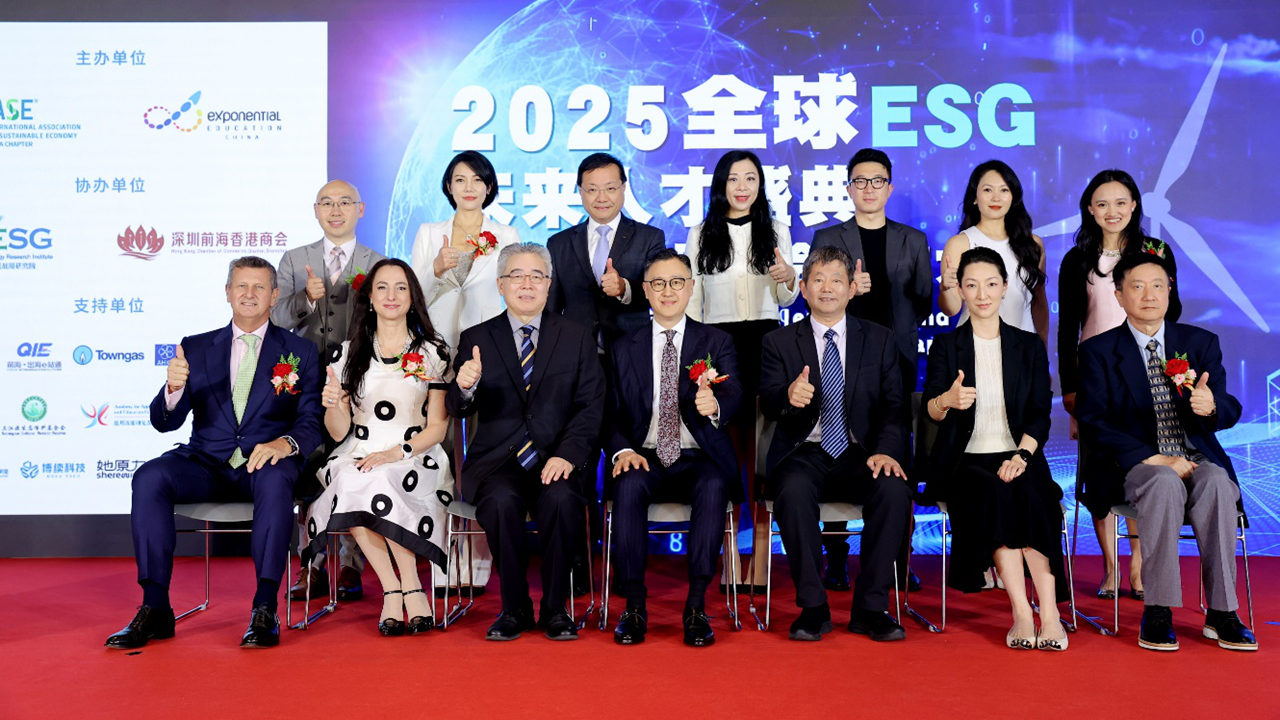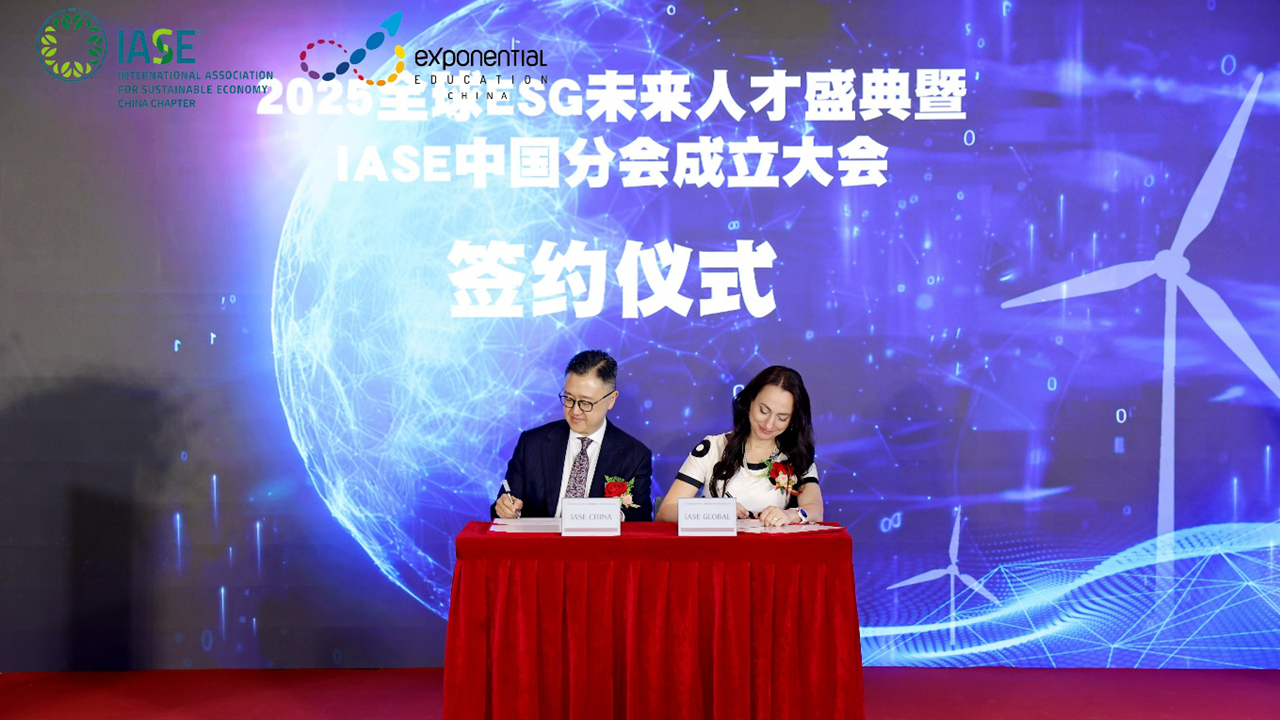On October 28, nearly 150 guests — including policymakers, academics, business leaders and young professionals — gathered in Qianhai for a conference focused on ESG talent cultivation, localization of international standards, and the green transformation of enterprises. The event injected fresh momentum into the construction of China’s ESG talent ecosystem.
A major highlight was the launch of the International Association for Sustainable Economy (IASE) China Chapter, marking official authorization for the IASE certification system — which unites more than 40 organizations across 39 countries — to operate in China.

Guests attending the conference pose for a group photo. Photos courtesy of the Hong Kong Chamber of Commerce Qianhai
Registered in Hong Kong, the IASE China Chapter has designated Exponential Education (China) as its exclusive operator for Chinese mainland as well as Hong Kong, Macao and Taiwan.
In his address, Joseph Mak, chairman of the IASE China Chapter, cited the 2025 White Paper on Sustainable Talent Demand, which shows global ESG roles rose 64.5% from 2022 to 2023 while 61.6% of practitioners have less than three years’ experience. He also noted an MSCI forecast that China’s ESG talent gap could exceed 2.27 million by 2025.

Joseph Mak (L), chairman of IASE China Chapter, and Carmen Micu (R), chair of Board IASE Global, sign a cooperation agreement at the conference.
“The China Chapter’s advisory committee brings together leading international scholars and experts to ensure global standards are effectively adapted to local business practices,” Mak said. “By integrating international certification with world-class educational resources, we aim to build a complete ecosystem that strengthens sustainable-development capabilities for Chinese learners, cultivates ESG professionals with both international perspective and local practical skills, and contributes to China’s ‘3060’ carbon goals — peaking emissions by 2030 and achieving carbon neutrality by 2060.”
In a video message, Robert Lee Wai‑wang, member of Hong Kong’s Legislative Council for Financial Services, expressed hope for collaboration between the IASE China Chapter and Hong Kong institutions through mutual recognition of certifications and joint curriculum development. “This can position Hong Kong as a hub connecting mainland ESG talent with international capital, and help expand the ESG talent pool across the Guangdong-Hong Kong-Macao Greater Bay Area,” he said.
During the keynote session, four industry leaders offered practical perspectives on cultivating ESG talent — covering global climate governance, university training, corporate green-finance practices, and industry–education collaboration — providing attendees with actionable insights.
The event was hosted by the IASE China Chapter and Exponential Education (China), and co-organized by the Asia-Pacific ESG Strategy Research Institute and the Hong Kong Chamber of Commerce Qianhai.









